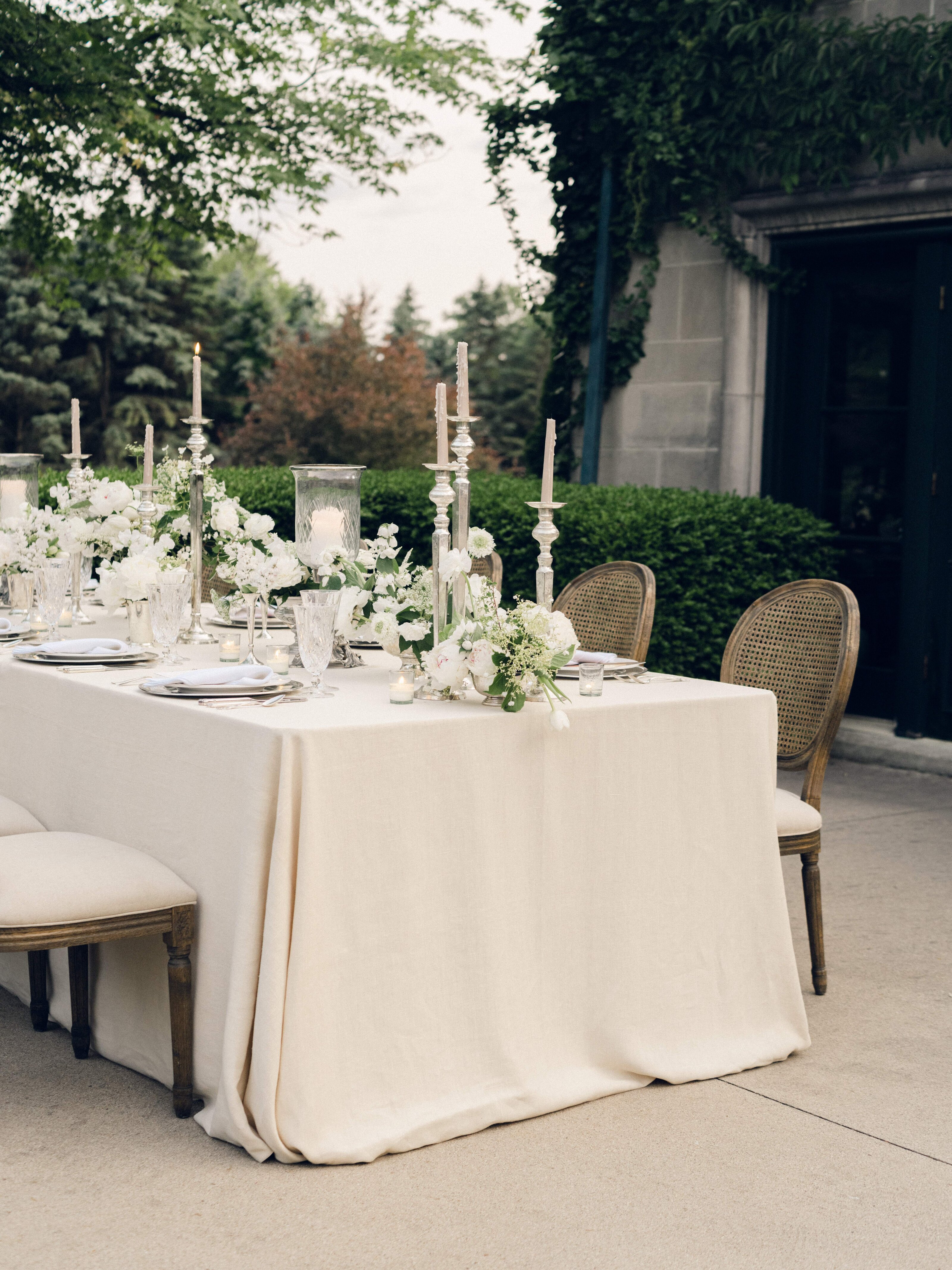
“What can we gain by sailing to the moon if we are not able to cross the abyss that separates us from ourselves? This is the most important of all voyages of discovery, and without it, all the rest are not only useless, but disastrous.” – Thomas Merton
Pulling into the apartment complex, I could feel my tense body relax a little bit; it was finally just the two of us. I’d spent the evening with my immediate family and my boyfriend, Serg. I switched the ignition off in the car as he turned to me and said, “I’ve never seen you like that before… were you reacting to your family? Were you stressed? Were you moving more into your 5?” This might be a foreign question if you’re new to the concept of the Enneagram (pronounced any-a-gram); a personality typing system rooted in ancient tradition. Some people believe it’s been around since as early as the 4th century.
I’d heard murmurs about this personality typing system for a couple years before I really began to dive deeper into it at the beginning of 2019. I’d even taken a few free tests online in 2018, but every time I would take the test and read my top result, often testing highest as the type 2 (The Befriender), it just didn’t feel right to me. When I finally decided to pour myself into figuring this out for myself, I realized that this tool may seem simple at first glance, but it gets more complex the more you study it.
It may seem trite to say that the Enneagram typing system changed my life, but I’m telling you, it has been an absolute game changer. It has enriched EVERY part of my life; it’s helped me in the relationship I have with myself, it’s helped me solidify and enrich my relationship with Serg, and it’s helped me understand so many people who are crossing my path each and every day.
WHAT IT IS AND WHAT MAKES IT DIFFERENT
The word Enneagram is Greek. The two roots are ‘ennea’ the Greek word for nine and ‘gramma’ which in Greek means something that is drawn or written. The Enneagram is made up of 9 different types. Unlike personality tests, like the Myers-Briggs Type Indicator, which focus very broadly on how you take in information and how you like to respond to the world with that information, the Enneagram is centered around your motivation behind each and every decision you make in your life.
The Enneagram is a powerful resource that helps identify our blindspots, notice growth edges, and recognize relational dynamics both within yourself and externally. It can help you understand what you look like in health, in stress, and the layers of how you interact with the world. The Enneagram is far more detailed than any other personality typing indicator that I’ve used personally or professionally. It brings so much awareness which can lead you to understanding, healing, acceptance, and growth. Each type has a core motivation and a core fear that drives them.
I love how Beatrice Chestnut, a licensed psychotherapist and coach who has studied the Enneagram for over 28 years, frames up how the Enneagram can help us:
“We humans are all limited to the extent that we are trapped in invisible automatic patterns that we don’t see. We all take on specific coping strategies early in life to get along with others and get what we need, and these early strategies for dealing with the world around us become fixed and rigid patterns that can be hard to change because they are old, familiar, and comfortable. By illuminating the habitual patterns that constrain us (that we often don’t see because they are unconscious), the Enneagram provides a map for becoming freer of compulsive habit, more conscious in the choices we make, and more capable of a wider range of coping strategies in daily life.
In short, it helps us wake up to our unconscious (and thus automatic and invisible) repetitive patterns that direct our beliefs, our emotions, and our behavior so that we can live life more fully and have a more satisfying experience of everything.”
When you utilize the Enneagram, it can serve as a GREAT coach and teacher. It has revolutionized my personal relationship with myself AND given me profound insight, understanding and language to navigate other relationships (the different types) in my life.
OVERVIEW OF THE 9 ENNEAGRAM TYPES
Type 1 The Perfectionist, Improver or Reformer
These individuals see the world through a lens of improving the systems and world around them. They focus much of their energy and attention on whether things are right or wrong, doing the right thing, seeking to correct errors so that they might improve things.
Core Fear: Being seen or labeled as people who are bad, imperfect, or morally flawed. Often they will cope with this fear by focusing on being disciplined and have extremely high expectations for themselves and the individuals around them as well.
Core Motivation: They strive to live a life of purpose that they deem as good and honorable. They’re always seeking the correct way to do things.
Type 2 The Helper or Befriender
These individuals are largely identified with their giving tendencies. They strive to create connection and build rapport in relationships. They can be highly strategic around building their relationships, structuring them so that they become important or vital to the other person with the intention that their own needs, that they’re fearful to ask to be met, will be met in return.
Core Fear: Being unloved or alone. They bury that fear by seeking to take care of others and becoming an integral part of the lives of others.
Core Motivation: To feel loved and appreciated. This encourages them to show their affection toward others in word and deed.
Type 3 The Performer or Achiever
These individuals see the world through a task or goal list that will help them fulfill an idea of what will make them successful. Much of what they focus on is drawing attention to their accomplishments or how they believe they need to be perceived in order to garnish favor with whomever they’re around.
Core Fear: Being a failure or seeming insignificant. To stave off this fear, they are always looking for ways to win in life so that they might reassure themselves that they are valuable.
Core Motivation: To be seen for their attributions. Feeling admired helps them to avoid feeling worthless.
Type 4 The Romantic, Idealist or Artist
These individuals value beauty, emotion, authenticity, and are the most comfortable with a vast range of emotions. They’re extremely adept at navigating pain and empathy for others as they feel deeply with and for others. As they’re so deeply feeling, they may get swept up in emotions and grow fatigued by taking on the emotions and feelings of others.
Core Fear: That they are doomed to miss out on a happiness that others seem to have access to or that they are always missing out. As a way to handle this, they seek to rev up what makes them unique or special so that they might be appreciated.
Core Motivation: To feel unique by expressing their creative endeavors or by amplifying areas of their personality that they feel are lacking.
Type 5 The Observer, Researcher or Analyst
These individuals are very often introverted and shy. They aim much of their focus on thinking, following rabbit trails of things that they find interesting. They’re incredibly adept at building boundaries as they feel that they have a limited amount of energy reserve for their days. They are hypersensitive that others may be too draining to their finite stores of energy and time.
Core Fear: That they will be depleted by their own needs and the needs of others. To combat this, they often withdraw from relationships and focus much of their attention on escaping the demands they feel from the world.
Core Motivation: To feel competent and like they have a hold on their reality and the environment that they are in. This leads them to a constant desire for learning and accumulating knowledge.
Type 6 The Skeptic, Loyalist, or Contrarian
These individuals focus much of their energy and attention on detecting threats and preparing for the bottom to fall out. They maintain a vigilance that is almost constant, extremely loyal, very analytical and are great at coming up with solutions.
Core Fear: That they will be unprepared to defend themselves or those that they love from danger. They spend a lot of energy seeking to prepare for each outcome that they imagine.
Core Motivation: To remain safe and secure. They seek reassurance from people that they trust and groups that they feel loyal to.
Type 7 The Enthusiast, Adventurer or Epicure
These individuals focus on creating fun and seek novelty. They’re often incredibly fun-loving, enthusiastic and have an extreme dislike for feelings that make them uncomfortable like panic, sadness or boredom. They love to reframe things with a positive spin and often have varied interests.
Core Fear: That they will get stuck in a rut and miss out on the fun in life. To avoid this, they are often seeking out new experiences and adventures.
Core Motivation: To avoid feeling uninspired, sad, bored, or fearful.
Type 8 The Challenger or Boss
These individuals strive to appear powerful and confident to protect themselves from feeling or appearing vulnerable to others. They are extremely adept at gleaning where power lies and are natural leaders with big energy.
Core Fear: That they will be manipulated or betrayed rendering them vulnerable, so they seek to remain in control and always appear strong.
Core Motivation: To be independent, resist appearing weak, remain autonomous and free from anything that may restrict them.
Type 9 The Peacemaker or Mediator
These individuals can easily see all sides of an issue and are always seeking to reduce conflict and strive for harmony at all costs. They’re generally pretty easy-going and place a lot of attention on getting along with people. They lose touch with their anger or strive to stay away from holding strong opinions as it may create strife with others.
Core Fear: That they will be seen as needy so they push people away and often will forfeit their own desires so that they can remain agreeable to the desires of others around them.
Core Motivation: To be at peace in their relationships and environment and avoid conflict.
I’m curious if any of these types really resonate with you or if any stuck out to you that you hope you AREN’T? If there’s a type that brings up a strong reaction from you, I would get curious around what’s coming up for you. The beautiful thing about each type is that they offer a unique and valuable perspective on life. There are several free testing options available to you online, but I really encourage you to avoid simply testing yourself and trusting that your top result is your type. One of my favorite Enneagram specialists, Ian Cron, is a therapist and it took him ten months to really identify his type! I don’t say that to intimidate you, but I do say that to invite you to really pace yourself and to take your time with this process because I can tell you firsthand this tool is a complete game changer!
A FEW RESOURCES
TESTING OPTIONS
– Truity offers a free option here.
– The Enneagram Institute offers a test here for a $12 investment.
– The most extensive report I’ve found is the iEQ9 which has two options at $60 and $120. You can find that here.
PODCASTS
- One of the best introductions and overviews I’ve heard (trust me, I’ve been around the block) can be found here.
- My favorite podcast channel, Typology, can be found here. Ian, the host of the show, does a six minute audio overview that you can listen to here.
- An episode of my podcast where I sit down with my boyfriend to talk about the Enneagram and our types here.
WEBSITES TO CHECK OUT
- The Enneagram in Business: offers a lot of great overviews and graphics to explore.
- The Enneagram an Introduction: offers a good history and options for further exploration.

Evelyn is a Mindset and Life Coach.
+ view the comments







